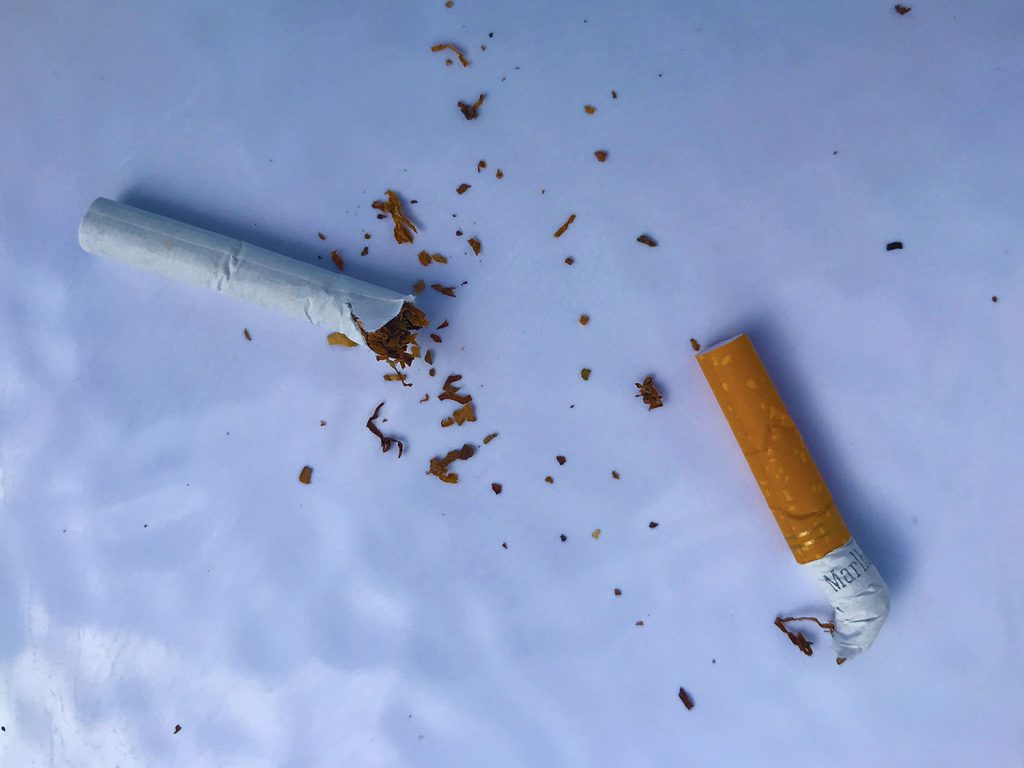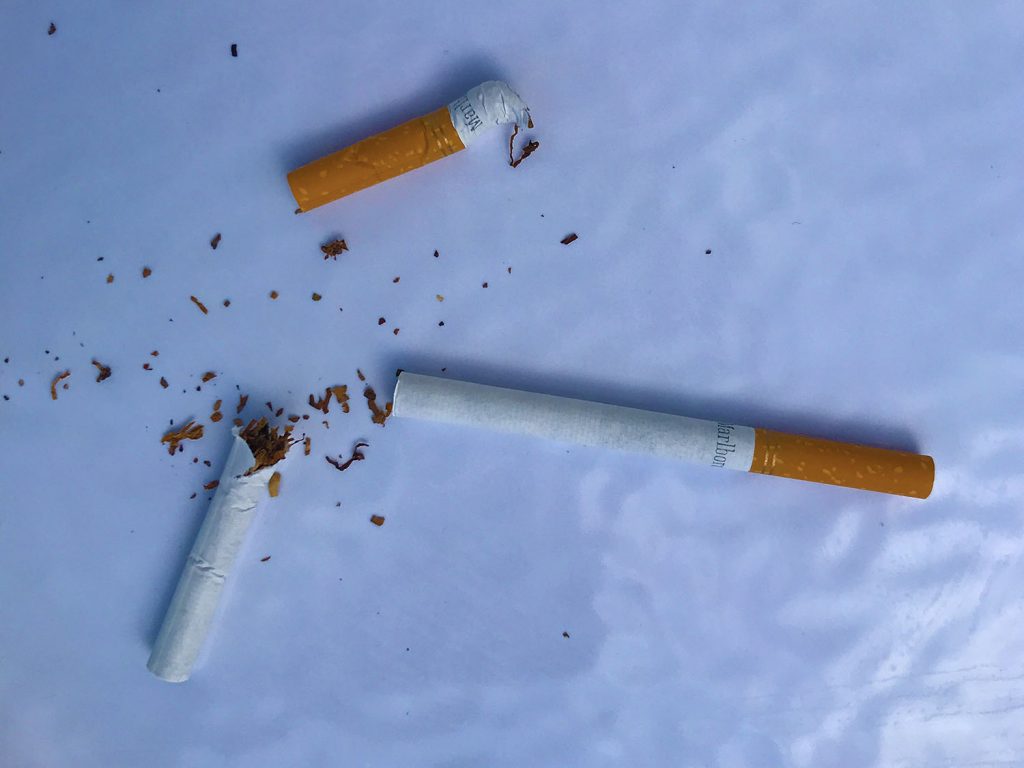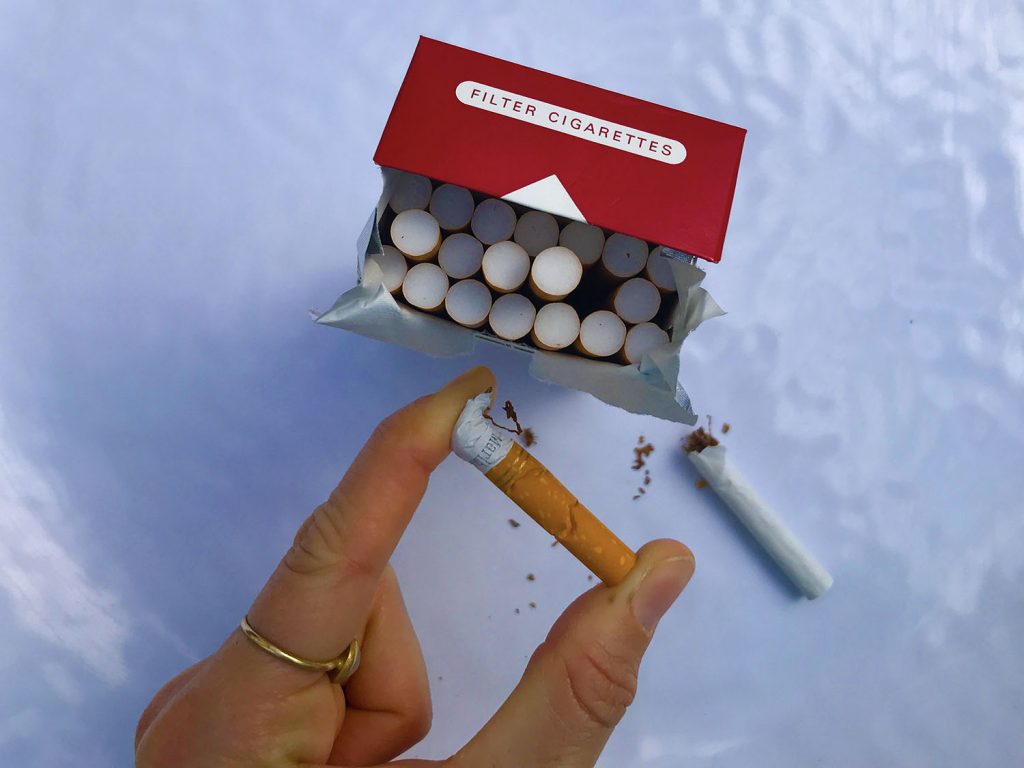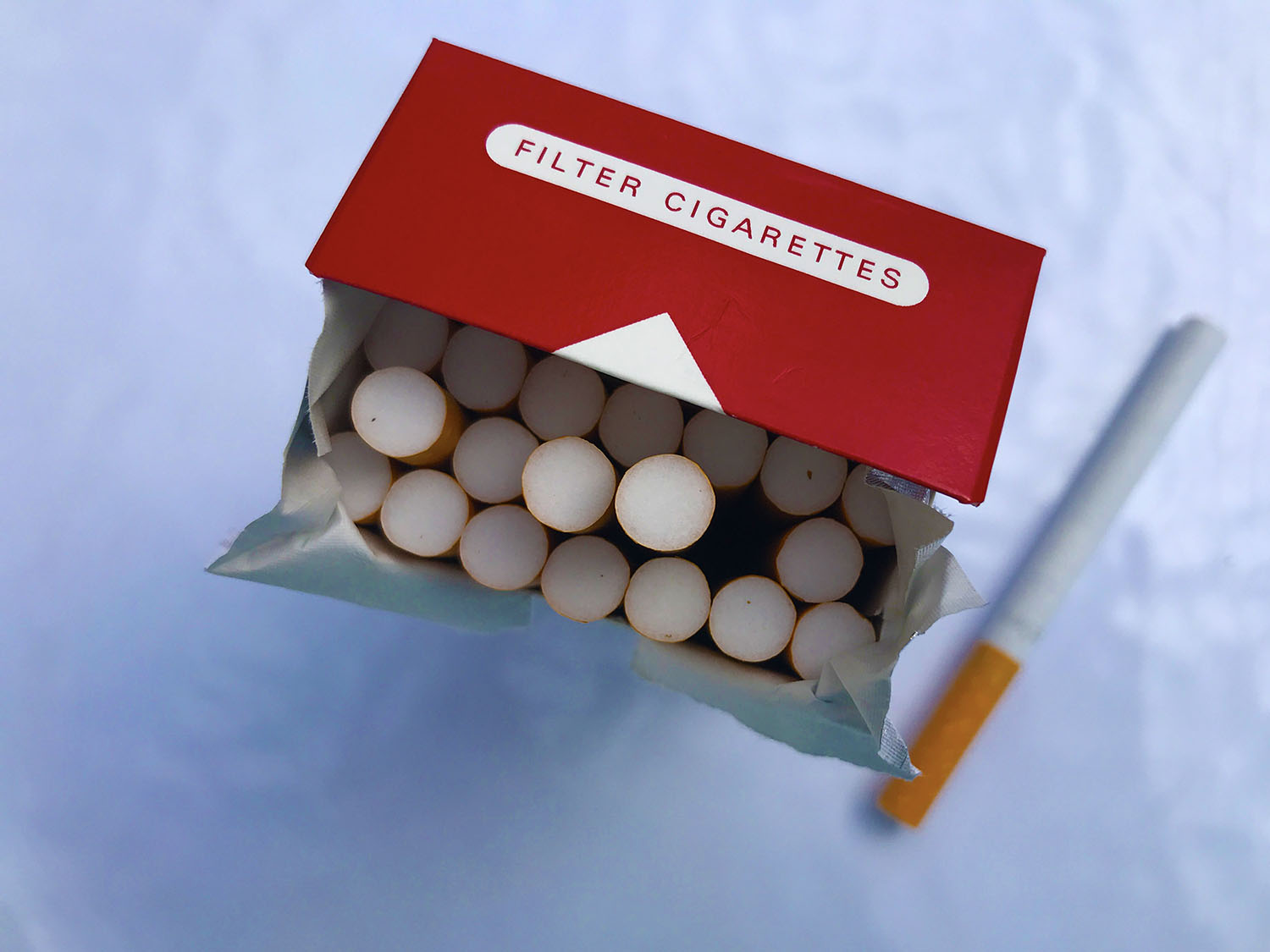Why You Should Stop Smoking Before Surgery & Tips to Help You Quit
- Many of us know the dangers of smoking. These risks are even more severe leading up to surgery.
- There is a long list of health complications from smoking prior to surgery, and an equally long list of benefits if you do quit before a procedure.
- It’s no easy feat to give up cigarettes, so we offer some helpful ways to quit to ensure that you have the best surgery process possible.
If you’re a smoker, you’ve likely had friends and family on your case about quitting for as long as you’ve been smoking. But the need to quit increases tenfold when the person telling you to stop is your surgeon…and the reason for needing to quit is an upcoming surgery. From drastically decreasing your ability to fight infection to increasing your pain intensity level, smoking before surgery (and during your recovery) presents a number of serious impairments to your health and your ability to heal. But how, exactly, do you kick a decades-old habit to the curb and stop smoking before surgery…and why does it matter anyways? Today, we’re diving into:
- The dangers you face if you don’t stop smoking before surgery
- The benefits of quitting smoking before surgery
- Tips to help you stop smoking before surgery

Do I really need to stop smoking before surgery?
Whether it’s our general practitioner telling us to eat more vegetables, or our dentist telling us to floss twice daily, we’re all guilty of ignoring a medical professional’s orders at one point or another. After all, they’re just telling us these things because they have to…not because they actually expect us to do it, right? Well, when it comes to quitting smoking before surgery, not exactly. You absolutely need to stop smoking before surgery—if you don’t, the repercussions of ignoring your surgeon’s advice are more dangerous (and disastrous to your recovery) than you may think.

What are the dangers I face if I don’t stop smoking before surgery?
We could go on for days (and days) on end about the negative repercussions of smoking before surgery—but, instead, we’ve rounded up 4 major reasons to stop smoking before surgery below:
- Your body’s ability to heal wounds is impaired and you’re at a greater risk for infection. According to The Journal of American Anesthesiologists: “…the consequences of smoking do not end at the recovery room door. Surgeons have long maintained that the healing of surgical wounds is impaired in smokers, and most clinical and experimental studies confirm that smoking status is a risk factor for wound dehiscence and infections.”
- Your risk for blood clots and heart attack is almost twice as high as a non-smoker. According to the American College of Surgeons, “The nicotine from cigarettes can increase your blood pressure, heart rate, and risk of arrhythmias (irregular heart beat). The carbon monoxide in cigarettes decreases the amount of oxygen in your blood.”
- You are more than twice as likely to get pneumonia as compared to a non-smoker. According to the American College of Surgeons, “Smoking increases the mucus in the airways and decreases your ability to fight infection. It also increases the risk of pneumonia and other breathing problems.”
- Across the board, your risk for complications are higher than that of non-smokers. In fact, according to the American College of Surgeons, “Studies identify that patients who smoke have:
- Increased wound infection and splitting open the wound in patients having general surgery or hip and knee replacements.
- Increased sternal (chest bone) wound infection after coronary bypass surgery.
- Increase wound necrosis (tissue death) after mastectomy and breast reconstruction.
- Increased incisional and recurrent inguinal hernias.
- Lack of bone healing after orthopedic surgery.
- Delayed healing and tissue death in plastic surgery.
- Greater pain intensity and higher amounts of narcotics needed for pain control.”

The benefits of quitting smoking before surgery
Now that we’ve covered the bad news, there’s plenty of good to get to as well. In fact, according to the American College of Surgeons:
- Your airway function can improve if you quit smoking eight weeks before surgery
- Quitting just one day prior to your procedure can decrease your blood pressure and irregular heart beats (both of which are tied to a smoker’s increased risk of heart attack)
- A hospital is a smoke-free area, so you’ll have plenty of support around you and won’t be tempted to indulge
- The quit-success rate is much higher for those who stop smoking before surgery
Tips to help you stop smoking before surgery:
- Learn from your past. If you’ve tried to quit smoking before and failed, analyze what went wrong. At what point did you cave? Was it stress? Boredom? Anxiety? Did you not stock up on oral substitutes? Did you keep an extra pack of cigarettes around “just in case”? Think about past failed attempts to stop smoking and learn from them before you try to give it another go. Let your past failed attempts guide you as you make a plan to do things differently—and more effectively—this time around.
- Pick a “quit day” and prepare for it. Choose a day prior to your procedure (two months or more before your surgery is ideal, but quitting even just days before surgery also has major health benefits) and mark it on your calendar. Set this day in your mind as the day you’ll stop smoking before surgery. Tell friends, family members, and coworkers that this is your “quit day” and ask that they help hold you accountable. You’ll also want to stock up on oral alternatives like chewing gum, hard candy, toothpicks, etc. And lastly, get rid of every cigarette, lighter, and ashtray in your home, car, and office.
- Choose as least one external aid. Once you’ve done everything you can do as an individual to prepare for your quit day, you’ll also want to make a plan for external support. Will this come in the form of Nicotine Replacement Therapy, a stop-smoking class, an online or in-person support group, weekly therapy or counseling sessions? Seeking external support is such a pivotal step in your quit plan. In fact, According to U.S. News & World Report, “Research shows that people who participate in a smoking cessation program that provides support and guidance throughout the quitting process can double their chances of quitting.”
- Switch up your routine. You should have a plan in place to switch up your routine on (and after) your quit day. For smokers, the act of smoking is mentally linked to so many of your daily rituals—waking up, driving to work, taking a lunch break, driving home, sitting in your backyard after dinner. If you keep with the exact same routine, you’ll likely find yourself craving cigarettes in all of these same situations. Switching up your routine, though, doesn’t mean you have to get an entirely different job or not take a lunch break. Instead, just try driving a different route to work, or stopping at a new breakfast shop for a cup of tea in place of the coffee you normally have with your morning cigarette.

- Make other healthy choices. Healthy choices beget further healthy choices. It’s that simple. In addition to quitting smoking, make sure you avoid alcohol (which is so often a trigger for that urge to smoke). Replace that fast-food restaurant you always b-line to on your lunch break with a healthier option in a new setting. Stay active, take regular walks, and drink plenty of water and fresh fruit juices.
- Avoid the “three S” weak spots. To help you stop smoking before surgery, avoid your weak spots. We like to think of these as the three S’s: situations, settings, and other smokers. Every smoker has that setting where they just love to smoke (around the corner outside of your office or in your car on your way home), the situation that always makes them crave a cigarette (when they’re having a beer after work or a coffee in the morning), and other smokers who give them the urge to smoke. Avoid these as well as you can on, and after, your quit day.
- Have a list of help call lines and other emergency resources on hand. Quitting smoking isn’t just as easy as deciding to quit and never again having an urge to smoke. Even the strongest willed individuals who’ve completely prepared for their quit day may find themselves craving a cigarette a day or two in. It’s always best to have a list of resources ready for this case. We recommend the following:
- Quit Line Phone Number: 1-800-QUIT-NOW or 1-800-784-8669
- National Cancer Institute Tobacco Line: 1-877-448-7848
- Centers for Disease Control Resources
- American Lung Association “I Want to Quit” Page
Overall, it takes serious diligence and willpower to stop smoking before surgery—but the ends are absolutely worth the means. You’ll have a much safer experience while under the knife, a faster and easier recovery, will be discharged from the hospital quicker (amen to that!), and won’t have to return to the hospital due to a nasty wound infection or pneumonia.
P.S. If you think that vaping doesn’t count when it comes to quitting before surgery, you should read up here.


